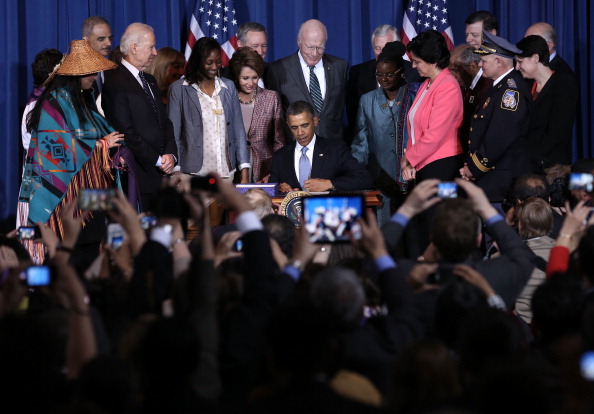
President Obama, , joined by Vice Chairwoman of the Tulalip Tribes of Washington State Deborah Parker, trafficking survivor Tysheena Rhames, Police Chief James Johnson of Baltimore County in Maryland, and Executive Director of New York City Anti-Violence Project Police Department Sharon Stapel, and members of Congress and his adminstration, signs the Violence Against Women Act into law March 7, 2013. (Photo by Alex Wong/Getty Images)
This blog is part of a series on human rights in the State of the Union address. The United States has an obligation to pursue policies that ensure respect for human rights at home and around the world. Follow along and join the conversation using #SOTUrights.
Dear Mr. President,
This State of the Union, will you make women’s rights a priority?
Women across the world—including here in the U.S.—experience horrific levels of violence. 1 of 3 women globally will be raped, beaten, or otherwise abused in their lifetime, and you, Mr. President, can help end this epidemic.